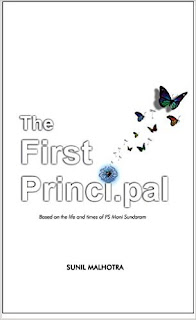If we do not change our direction we're likely to end where we're headed.
The most important feature of a transforming organisation is that it has a 'Vision' or what I would like to call the school's desired future. We have to make the school an important societal change agent for the future, to bring about any transformation in learning and social development in any community or country.
First and foremost we must list what a school vision must be:
- The Vision must be initiated by the leader and developed with school personnel and all stakeholders.
- It must provide future orientation.
- Set an overarching direction.
- Evoke an image of the future school.
- Provide a standard of excellence, an ideal.
- Is the vision, the basis for the unique contribution to students, to school personal, community, and society?
- Vision should be shared and supported by the internal and external stakeholders.
- The vision must be compelling and inspiring.
- Finally, the vision must be living and even evolve further as the process of change creation rolls out.
 Reading my lessons from Schools Can Change and understanding the work of Learning Forward, I have been able to crystallize a vision statement for The Fabindia School, and this is how the vision could read. "The Fabindia School will become a national leader in innovation by implementing new technologies in learning and offer affordable quality education." Another way to state the school vision could be "The Fabindia School will become a national leader in schools and become the favored destination for English learning in rural India." The first statement is compelling and inspiring, the second seems to me a statement of purpose, and explains to all the stakeholders what is in it for them. This perhaps is our goal and is indeed a part of our vision wherein we have set out to become an institution of excellence, and there is an element of dynamism in what we are doing. The vision thus sustains over an extended period of time and is the direction for the ongoing mission.
Reading my lessons from Schools Can Change and understanding the work of Learning Forward, I have been able to crystallize a vision statement for The Fabindia School, and this is how the vision could read. "The Fabindia School will become a national leader in innovation by implementing new technologies in learning and offer affordable quality education." Another way to state the school vision could be "The Fabindia School will become a national leader in schools and become the favored destination for English learning in rural India." The first statement is compelling and inspiring, the second seems to me a statement of purpose, and explains to all the stakeholders what is in it for them. This perhaps is our goal and is indeed a part of our vision wherein we have set out to become an institution of excellence, and there is an element of dynamism in what we are doing. The vision thus sustains over an extended period of time and is the direction for the ongoing mission.
